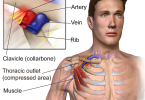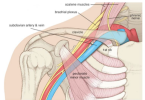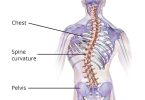Leading an active lifestyle is the key to staying healthy, but participating in sports can leave you vulnerable to injury. Concussion is one specific sport injury recently garnering a lot of attention in the press, in medical circles, in research facilities and with coaches and trainers.
A concussion is an injury to the brain which may result from a blow to the head, face or neck, or a hit to the body causing an impulsive force to the head. This injury cannot be seen on routine x-rays, CT Scans or MRI’s, but it can cause a wide variety of symptoms that affect a person physically, cognitively and emotionally. When dealing with concussions, it is important to see a doctor who is knowledgeable in concussion management. Recognizing that each concussion is different, the physician works with a team of health care professionals to assess, manage and rehabilitate the various facets of the injury.
The cornerstone of concussion management is physical and cognitive rest until the acute symptoms resolve. Returning to normal activities is a step-wise process that requires patience and guidance. Once the early symptoms subside, athletes may be referred to physiotherapy to assist with a safe return to sport and activity. If physiotherapy is recommended as part of the treatment plan, it could include assessment and treatment of the following:
• Education – this is probably the most important part of the healthcare professional’s involvement in managing concussions; reassurance, ongoing education and management strategies are integral components of proper rehabilitation
• Cervical Spine – injury to the neck is often associated with head trauma; a treatment program may be implemented based on patient-specific assessment findings and patient tolerance
• Autonomic – following a concussion, metabolic and physiologic changes can occur resulting in altered response to exercise; physiotherapists use a graded exercise program to guide athletes in a safe return to sport; the athlete’s response to cardiovascular work is closely monitored during these sessions using heart rate and blood pressure monitors, along with symptom reporting
• Balance, Vestibular and Vision – two potential results of concussions are balance and visual disturbances; physiotherapists use techniques that help retrain the brain to understand complex environments that include space, motion, head and eye movements with exercises that focus on vision, balance, motion, postural stability and gait
• Sport Specific Therapy – physiotherapists and kinesiologists assess the athlete’s response to dynamic activity through cardiovascular exercise, strength training, agility and speed work, plyometrics and sport-specific drills prior to full return to normal sport and activity
www.fowlerkennedy.com






